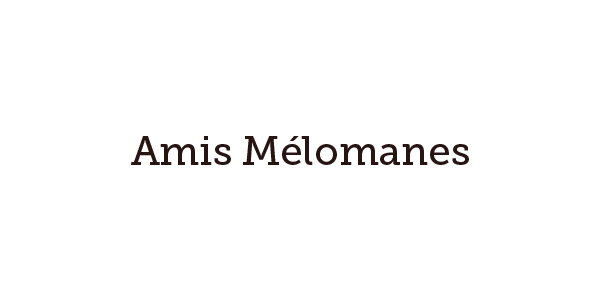19:30 Eglise de Rougemont
G.F. Haendel
Suite pour trompette et orgue en ré majeur
G.B. Viviani
Sonata Prima pour trompette et orgue
J.S. Bach
Toccata en sol majeur BWV 916
G.P. Telemann
Concerto pour trompette et orgue en ré majeur TWV 51: D7
J. Bull
In Nomine n° 9
H. Tomasi
Variations grégoriennes sur un Salve Regina pour trompette et orgue
C.M. Widor
Salve Regina de la 2ème réforme liturgique
H. Tomasi
Semaine Sainte à Cuzco pour trompette et orgue
Unter der Patronage von

